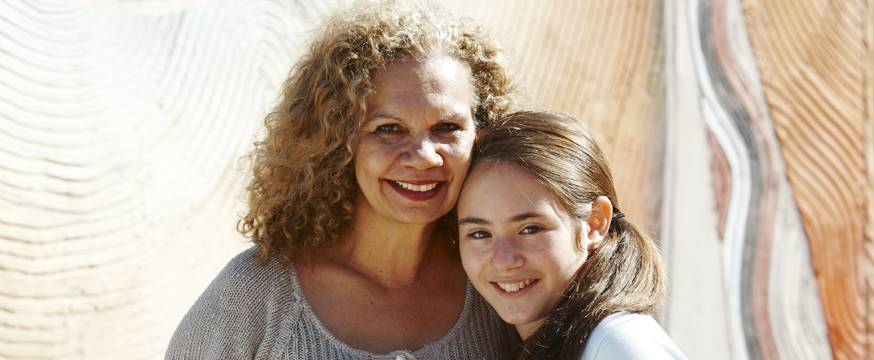
In profile: Stephanie Armstrong, Indigenous Research Fellow
Research 12 Mar 2013 4 minute readStephanie Armstrong, a Gamilaraay woman from Gamilaraay/Yuwaalaraay Country (northwest NSW), joined ACER in 2010 as Indigenous Liaison Officer and now works across several projects as an Indigenous Research Fellow.
Stephanie has over 30 years’ experience in education, having worked in early childhood, primary, secondary and further education settings, within schools, universities, government and not-for-profit organisations.
‘Teaching has been a great career choice. I have been lucky enough to have worked across Australia with
many wonderful people. Over the last 15 years I have had a number of opportunities to work nationally and internationally, leading discussions and workshops that guide and support as well as challenge,’ says Stephanie.
‘As a Gamilaraay woman, with a long history of working within Aboriginal education I have learnt many things
that have helped me to advocate for equitable outcomes in education for First Australian children. This
responsibility is not only important but one I take seriously.’
Stephanie describes the move to ACER as a change of direction from the classroom to research. Part of this change involved commencing a Masters of Education by Research last year, with ACER’s support. Stephanie’s research topic – using a strengths-based approach when working with Aboriginal children attending Prep in Victoria – reflects her interests in early childhood education and how educators need to
build on the strengths of children and seek interventions that are tailored for each First Australian child.
Since joining ACER, Stephanie has worked closely with ACER’s Indigenous Liaison Officer, Gina Milgate, and has helped to strengthen the organisation’s principles for working with Indigenous communities. She has also received a Fellowship in 2013 to work with young Aboriginal women in Year 11 and 12 who are seeking to enter the health professions in Victoria.
Stephanie says her colleagues at ACER have supported her to gain skills and confidence in research, and have provided opportunities for her to share her knowledge and understandings.
‘Listening and respecting other ways of seeing the world and working within research is vital to the way I operate, therefore working in pairs or small teams has produced both respectful and new practices at ACER,’ says Stephanie.
Stephanie co-authored a chapter in the 2011 ACER Press book, Two Way Teaching and Learning: Towards culturally reflective and relevant education. In the chapter, titled ‘Talking the Talk: The soft tissue of reconciliation’, Stephanie and her co-author Denise Shillinglaw explore the meaning of reconciliation as they experience it in their friendship, and the depth of appreciation for each other’s way of thinking, speaking and being that it has generated.
Stephanie believes that education plays a vital part in reconciliation. It is her aspiration for Indigenous education that the voices of First Australian peoples, and their ways of working, are listened to and everyone is respectful of the diversity and strengths that First Australians bring.
‘I am determined to continue to challenge as well as to provide the support necessary to influence change
so that educational policy, practices and the workforce engage with First Australians in lifelong learning,’ says
Stephanie.
‘I believe we have so much more to learn about First Peoples and the knowledge and learning they hold not only within Australia but within other parts of the world.
‘We need to keep the conversation going.’
